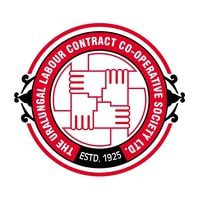In stark contrast to traditional hierarchical businesses, workers cooperatives stand as shining examples of democratic governance. They empower every worker-owner, not just the investors and executives, to actively participate in shaping the organization’s direction and fuel economic well-being and contribution for their member-owners.
One such shining example in the Indian cooperative movement is Uralungal Labour Contract Cooperative Society (ULCCS), Kerala. Here is a brief on the democratic governance processed followed at ULCCS.
Uralungal Labour Contract Cooperative Society (ULCCS), Kerala is one of India’s oldest and most remarkable labor cooperative, entirely owned and managed by its dedicated member workforce of more than 18000. The society has an annual turnover of more than Rs. 1,400 crores and has an asset of more than Rs. 6600 crores. ULCCS has achieved success in more than 7,500 projects. Their expertise lies in being a Total Solution Provider (TSP) for infrastructure development and management ventures.
ULCCS puts the reins firmly in the hands of its workforce. Every year, at the Annual General Meeting, the workers analyse the cooperative’s annual performance, ask tough questions, and ultimately elect the board of directors. This process is just not a formality and re-election is by no means guaranteed, ensuring accountability and keeping directors on their toes. Once elected, Directors are given complete autonomy to procure contracts, choose technology, allocate workers to different worksites and take day-to-day decisions. Therefore, the directors are the managers of this labour cooperative, who are elected by the workers.
On the other hand, the site teams are led by site leaders chosen from among the workers in a process in which only those workers who possess demonstrated ability and command respect and trust are selected.
Once selected the site leaders and workers continually discuss the site work strategy including decision of labour and work process. While the site leaders and workers discuss the strategy thoroughly, once the decision is made, everyone has to abide by it.
Continuous communication within the society further maintains the democratic process. There is a system of different levels and types of meetings to monitor and control the projects. Board of directors meets the Site leaders in daily meetings. Similarly, board members, site leaders and technical staff participate in weekly meetings. On the other hand, a monthly meeting is organized for all workers to discuss new developments and voice concerns.
Such meetings build team spirit and produce a sense of collective ownership and common mission which ultimately consolidate democratic governance and enhances productivity.



